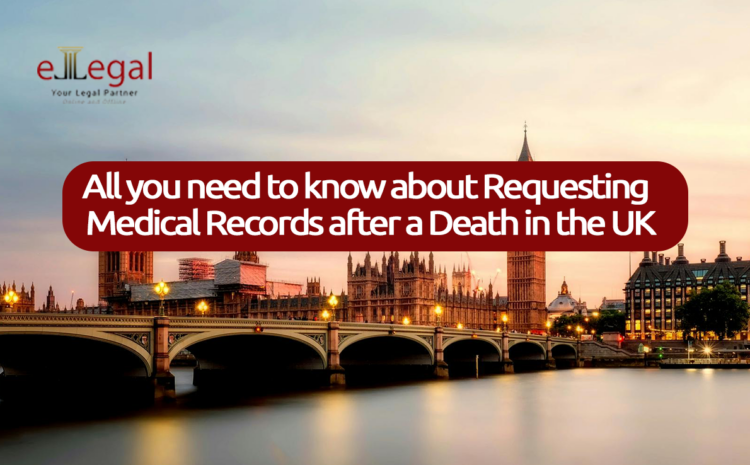
The death of a loved one is indeed a painful experience and situations may warrant that the medical records of the deceased are sought for various reasons in the UK which may be needed to either access and administer the deceased estate or proof of medical negligence in court. If you are interested in learning more about your family’s medical history, or maybe you want to ensure that they received good care or for whatever legal reason, it is paramount to know the process for obtaining their medical records and the time frame this can be achieved.
How to Obtain Medical Records of a Deceased Relative
The Access to Health Records Act 1990 gives certain people a right to see the health records of somebody who has died. These people are defined under section 3(1)(f) of that act as ‘the patient’s personal representative and any person who may have a claim arising out of the patient’s death’. These people are;
- The patient’s personal representative. This will be the executor or administrator of the deceased person’s estate.
- Any person who may have a claim arising out of the patient’s death (this could be a relative or another person but in most instances is a spouse, child or other dependent). However, please be aware that only information directly relevant to a claim will be disclosed in this instance.
Evidence Required
You must provide evidence when requesting the records that you fall within one of these two categories. If you are a personal representative then you can provide a copy of the Grant of Probate or Letters of Administration. If you are an Executor in the Will but have not yet received a Grant of Probate then you may be able to apply with a copy of the Will.
If you are not a personal representative, then you will need to show evidence of your relationship to the deceased such as through a marriage certificate or birth certificate.
How Long Are Medical Records Kept After Death
Upon a person’s death, their General Practitioner (GP) records are transferred to Primary Care Support England (PCSE) for secure storage. These records are retained for 10 years after the individual’s death, after which they are destroyed.
Hospital records, on the other hand, are typically kept for 8 years post-death, with specific exceptions. For instance:
- Mental health records; are retained for 10 years following the individual’s death.
- Maternity records; including those related to stillbirths or cases where the child later dies, are preserved for 25 years after the birth of the last child.
Suppose you are requesting these records for the purpose of pursuing a legal claim (rather than as a personal representative). In that case, it is important to note that claims are generally subject to a 3-year limitation period from the date of death. Requests made outside this time frame are likely to be denied, as the claim would fall outside the allowable period, making you ineligible to access the records.
Can Next of Kin Access Medical Records
Despite the widespread use of the phrase ‘next of kin,’ this is not defined, nor does it have formal legal status. A next of kin cannot give or withhold their consent to the sharing of information on a patient’s behalf. As next of kin, they have no rights of access to medical records of a deceased.
Can a Child Request Medical Records of Deceased Parents
As explained above, anyone who may have a claim resulting from the person’s death which means the representative of the deceased’s estate (the Executor or the Administrator), or the ‘dependants’ of the deceased. There are strict criteria as to who is considered a dependant; very generally, this includes spouses, civil partners, children, parents, and people living in the same household for at least 2 years before the death and immediately before the death as husband/wife/civil partner. Individuals falling into this category may be entitled to bring a civil claim arising from the circumstances of the deceased’s death. This explicitly means that a child who is of age can request the medical records of a deceased parent.
Time Limits
If the records were updated during the 40 days before the date of your application, you should be given access within 21 days. If the records were updated more than 40 days before the date of your application, you should receive the records within 40 days
Cost
Following the implementation of GDPR, the Access to Health Records Act 1990 was amended so that the records of a deceased person must be provided free of charge.
Conclusion
If you do not fall under the categories of people entitled to request the records then access to a deceased person’s records is decided on a varying case basis. The person requesting the records would need to write to the hospital or GP demonstrating that:
- They have a valid reason for requesting the records;
- They have a legitimate relationship to the deceased;
- Access to the records is in the public interest.
For more information on how to access the medical records of a deceased, you can reach out to us for a free consultation. Contact us today.





